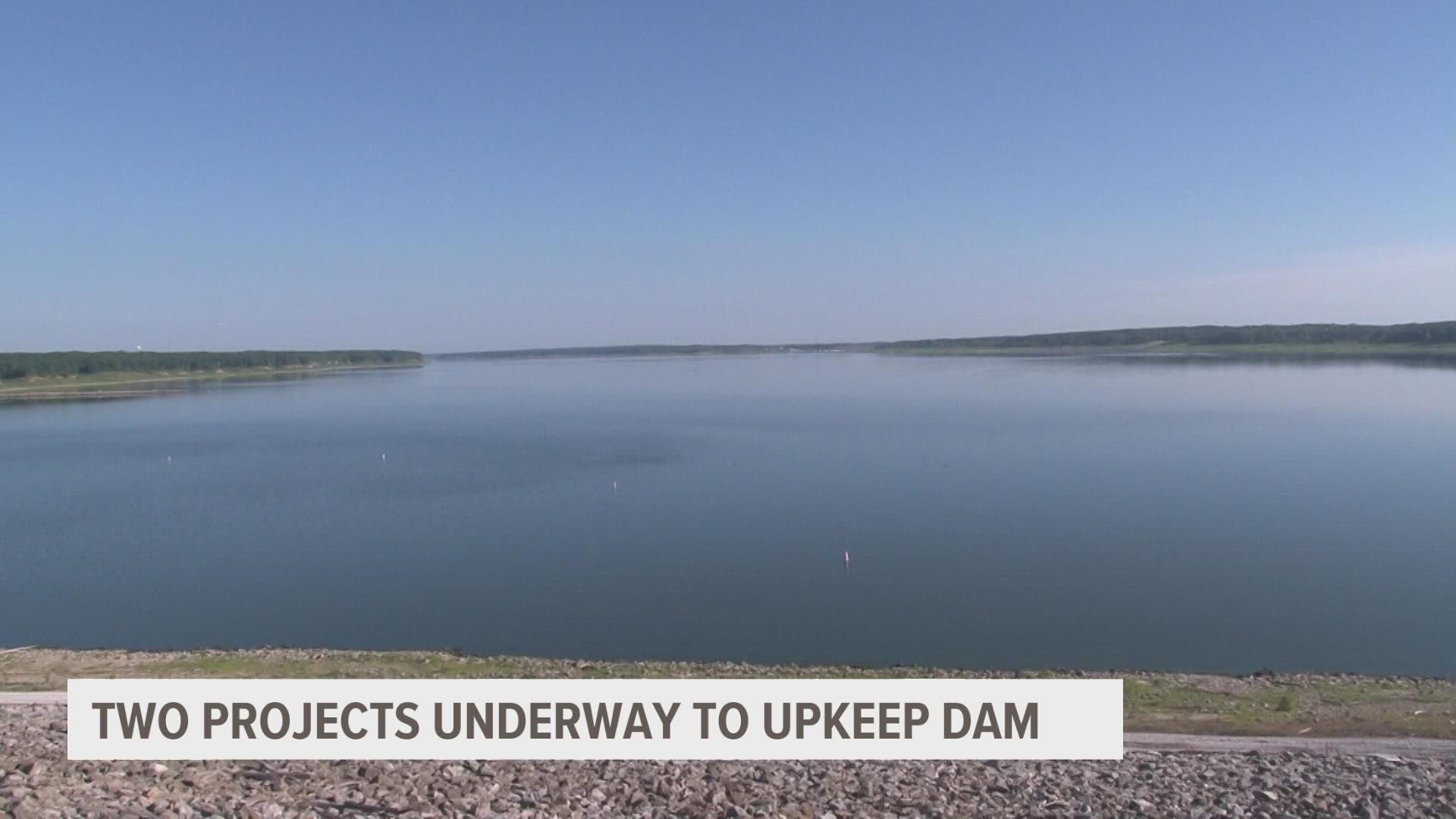JOHNSTON, Iowa — Upkeep of the Saylorville Lake Dam continues this summer, as two projects have started to make sure its structure stays intact.
Dayne Magneson, the lake manager, said the project to deal with erosion and debris removal hasn't been done in nearly 15 years.
The project will consist of workers placing large rocks around the dam to help protect it from high water events.
The freeze and melting in Iowa wear down existing rocks, which need to be replaced. According to Magneson, the project helps make sure the dam is protected and performs how it's supposed to.
"To make sure the integrity of the dam stays to the designs it was originally specced to," Magneson said. "That rock just protects that embankment from erosion."
The second project is debris removal.
Magneson said between 700 and 1,000 cubic yards of debris at the bottom of Saylorville Lake will be removed in a project that's 40 years in the making. A bathymetric survey image is how they estimated how much debris was underneath the water.
Most of the debris is driftwood and stuck in what's called the trash rack.
Magneson said removing the debris is important because it restricts some water flow and can cause damage.
To remove what's in the trash rack, the day water will be restricted during the day from flowing into the Des Moines River so divers can remove what they need to.
That can impact some recreational activities on that river
"It will be important to watch boating, especially at those levels because sand bars will start to be exposed. So there is a safety factor there and will limit the access of the river a little bit," Magneson said.
The debris removal project is expected to take three to four weeks to complete, while the erosion project is expected to take a year and a half.
► Download the We Are Iowa app
► Sign up for Local 5's "5 Things to Know" email newsletter
► Subscribe to Local 5 News on YouTube
.

